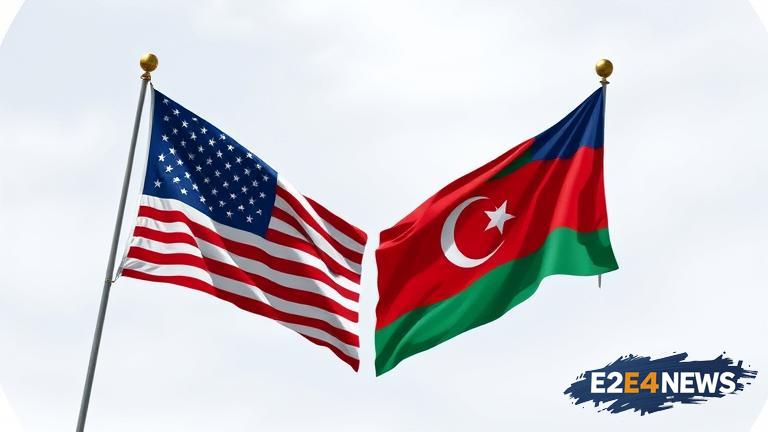Azerbaijan’s Foreign Minister has recently expressed optimism that President Trump’s administration will work with Congress to repeal Section 907, a provision that has limited US aid to Azerbaijan since 1992. The Minister’s statement comes as a significant development in the country’s efforts to strengthen its relationship with the United States. Section 907, which was enacted in response to the Nagorno-Karabakh conflict, has long been a point of contention between the two nations. The provision has restricted US aid to Azerbaijan, hindering the country’s ability to develop its economy and defense capabilities. The Foreign Minister’s comments suggest that Azerbaijan is eager to put the past behind and forge a new era of cooperation with the US. The repeal of Section 907 would be a major breakthrough in US-Azerbaijan relations, allowing for increased economic and military aid to flow into the country. This, in turn, could have significant implications for the region, potentially altering the balance of power in the South Caucasus. Azerbaijan has long been a key player in the region, with its strategic location and abundant energy resources making it an important partner for the US. The country has also been a crucial ally in the fight against terrorism, providing significant support to US operations in the region. Despite these contributions, however, the US has historically been hesitant to provide significant aid to Azerbaijan, due in large part to the restrictions imposed by Section 907. The Foreign Minister’s statement suggests that this may be changing, with Azerbaijan seeking to capitalize on the Trump administration’s more pragmatic approach to foreign policy. The repeal of Section 907 would be a major victory for Azerbaijan, allowing the country to access previously restricted funds and strengthen its economy and military. This could have significant implications for the region, potentially allowing Azerbaijan to play an even greater role in regional affairs. The US, too, would benefit from the repeal of Section 907, as it would allow for greater cooperation with a key ally in the region. The move would also be seen as a significant shift in US policy, potentially paving the way for greater engagement with other countries in the region. As the situation continues to unfold, it remains to be seen whether the Trump administration will ultimately succeed in repealing Section 907. However, the Foreign Minister’s comments suggest that Azerbaijan is optimistic about the prospects for a new era of cooperation with the US. The country’s strategic location, abundant energy resources, and commitment to fighting terrorism make it an important partner for the US, and the repeal of Section 907 would be a major step forward in strengthening this relationship. In the coming months, it will be important to watch for further developments on this issue, as the US and Azerbaijan seek to navigate the complexities of their relationship. The repeal of Section 907 would be a significant breakthrough, allowing for increased cooperation and potentially altering the balance of power in the region. As the US and Azerbaijan continue to work towards this goal, it remains to be seen what the ultimate outcome will be. One thing is certain, however: the repeal of Section 907 would be a major victory for Azerbaijan, and a significant shift in US policy towards the region. The country’s Foreign Minister has expressed hope that the Trump administration will succeed in repealing the provision, and it remains to be seen whether this will ultimately come to pass. The implications of such a move would be far-reaching, potentially allowing Azerbaijan to play an even greater role in regional affairs. The US, too, would benefit from the repeal of Section 907, as it would allow for greater cooperation with a key ally in the region. As the situation continues to unfold, it will be important to watch for further developments on this issue.
